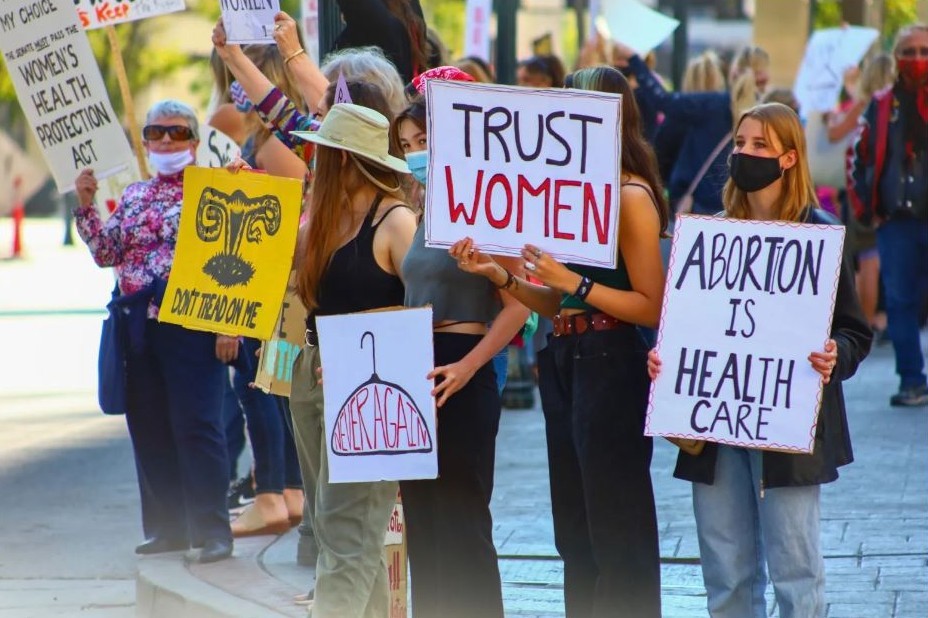
Staff reports | South Carolina senators narrowly rejected a near-total abortion ban this week, marking the third time a near-total abortion ban failed in the Republican-led chamber since the U.S. Supreme Court reversed Roe v. Wade last summer.
Differing versions of abortion bans have ping-ponged between S.C. House and Senate since last year. The federal court’s decision on Roe opened South Carolina last summer to a six-week abortion ban passed in 2021 by the General Assembly. But South Carolina courts temporarily blocked that ban and the S.C. Supreme Court eventually permanently struck it down saying the six-week ban was unconstitutional for violating the state’s right to privacy. In the meantime, the House twice pushed through a tougher, near-total ban, which was smacked down in the Senate.
Earlier this year, the House tried again, sending another near-total ban to the Senate (H. 3774). It calls for abortion to be banned at conception, with exceptions for rape or incest through the first trimester, fatal fetal anomalies confirmed by two physicians, and to save a patient’s life or health. Meanwhile, the Senate sent a proposal (S. 474) banning abortion about six weeks after conception to the House. So far, the House hasn’t taken up that bill in committee, although it could move forward in the current session’s remaining two weeks.

When asked how the dueling proposals on abortion could end the back-and-forth battle between the two chambers, S.C. Sen. Katrina Shealy, R-Lexington, told Statehouse Report: “It’s in the House’s hands. They can stop it now by passing the Senate bill sent to them in February.”
Women led filibuster of House bill
On Thursday, the Senate’s five women senators — Shealy, Sandy Senn, R-Charleston, Mia McLeod, I-Richland, Penry Gustafson, R-Kershaw, and Margie Bright Matthews, D-Colleton — led the third day of a filibuster to thwart the House’s near-total abortion ban.
“The only thing that we can do when you all, you men in the chamber, metaphorically keep slapping women by raising abortion again and again and again, is for us to slap you back with our words,” Senn said during the debate, according to published reports.
McLeod, who revealed in a previous debate that she had been raped, added Thursday: “Those who continue to push legislation like this are raping us again with their indifference, violating us again with their righteous indignation, taunting us again with their insatiable need to play God while they continue to pass laws that are ungodly.”
Senators eventually voted 22-21 to cut off debate on the measure.
On the continuing culture war

When asked how long the culture war over abortion would continue, Matthews said she had been wondering that for the last seven years she’s been in the Senate.
“Control over a woman’s body is the real issue,” she said. “If their goal was to protect children, there are currently a lot of the children in South Carolina now that need their protection. The real question is when are the other women of South Carolina going to start showing up and speaking out?”
Ann Warner and women’s rights advocates have been vociferous in their support for high-quality health care, including abortion, for women in South Carolina.
“We are relieved that the Senate failed to pass an extreme and dangerous abortion bill today,” said Warner, head of the Women’s Rights and Empowerment Network (WREN), on Thursday.
“We are incredibly grateful for the courage and tenacity displayed by our female senators, and we are also so thankful that advocates across South Carolina never stopped speaking up and showing up for reproductive freedom. We hope our lawmakers will turn their attention to passing laws that will make South Carolinians safer, healthier and more free.”
Planned Parenthood’s Vicki Ringer added, “The government should never force a person to carry a pregnancy or give birth against their will, but this male-dominated legislature is hellbent on controlling the decisions of women.
“A person’s health, not politicians, should guide important medical decisions at all stages of pregnancy. We urge House lawmakers to focus on policies that will actually help South Carolinians live and thrive in their communities rather than try yet again to ban abortion in the state.”
Her group pointed to state data that showed “pregnancy-related deaths increased by 9.3% in South Carolina between 2018 and 2019, with Black women 67% more likely to die either during childbirth or due to pregnancy-related complications than their White counterparts. The state’s infant mortality rate also continues to climb, increasing by 12% from 2020 to 2021 overall and by almost 40% since 2017 for infants born to non-Hispanic Black mothers.”
Abortion remains legal through 22 weeks in South Carolina.
- Have a comment? Send to feedback@statehousereport.com















 We Can Do Better, South Carolina!
We Can Do Better, South Carolina!